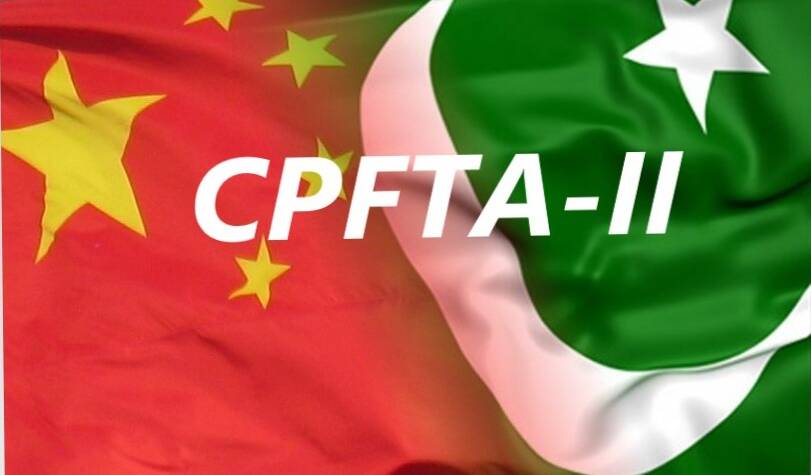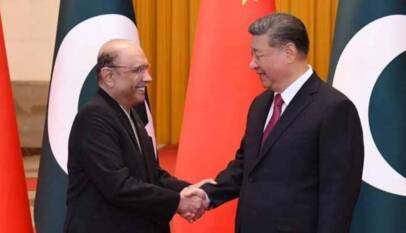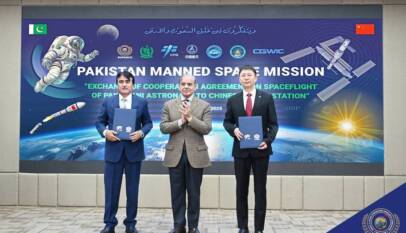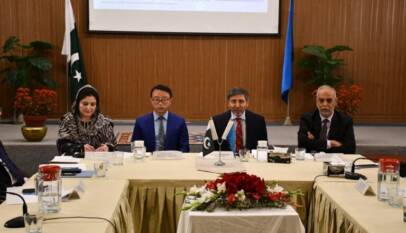CPFTA-II to strengthen trade liberalization and China-Pak all-weather strategic partnership: Chinese Envoy
BEIJING – China will provide more opportunities for Pakistani competitive goods to access the Chinese market under the China-Pakistan Free Trade Agreement Phase-II that came into force on December 1. “CPFTA Phase-II is a critical initiative to strengthen trade liberalization and deepen the all-weather strategic partnership between Pakistan and China. It will provide more opportunities for Pakistani competitive goods to access the Chinese market and the bilateral trade between two countries will be developed in a more balanced way,” Dr Wang Zhihua, Minister Counsellor in the Economic and Commercial Office of the Chinese Embassy in Pakistan told China Economic Net here on Wednesday.
CPFTA Phase-II came into force on December 1, 2019, under which the tariff concession on goods will be implemented from January 1, 2020. Elaborating on the new stage of China-Pakistan bilateral trade relations, he said that China Pakistan Free Trade Agreement is the first FTA China signed with a South Asian country.
Since its implementation in 2007, the bilateral trade volume soared from USD4 billion to USD15.6 billion, and the export volume from Pakistan to China rose from USD575 million to USD1.85 billion in FY2019, he added.
In 2011, China and Pakistan launched the second phase of negotiations on the FTA. After a total of eleven meetings, the Protocol of the CPFTA Phase-II was formally signed at the Second “Belt and Road” Forum for International Cooperation held in Beijing in April this year. Upon the approval of the legal procedures of both parties, CPFTA Phase-II has come into force on December 1, 2019 and the tariff concession measures will be implemented from Jan 1, 2020.
He said that CPFTA Phase-II is a significant measure to implement the consensus reached by both countries’ leaders. It fully reflects China’s determination to uphold the multilateral trading system given the increase in the unilateralism and trade protectionist rhetoric on the world economy. Moreover, it will deepen the all-weather strategic partnership between the two sides.
Dr Wang said that the revised CPFTA marks a milestone for the economic and trade relationship of the two countries. More competitive products will be exported to each other due to the reduced tariffs. “Take Pakistan for instance, it could export more competitive goods such as agricultural and textile products to China and increase its trade volume” he added.
Furthermore, the Phase-II of CPFTA will enable China to import more high value added goods from Pakistan, which will drive Pakistani export-oriented industry and enable Pakistan to better integrate into regional industry chain and value chain.
While commenting on the main difference between the CPFTA Phase-II and the previous one, he said that compared with the previous one, the revised CPFTA mainly reduces the tariffs and increases the level of trade liberalization of goods between the two countries. After the implementation of CPFTA Phase-II, the proportion of the tax items of mutual zero tariff products between China and Pakistan will gradually increase from the previous 35% to 75%, and the level of liberalization will increase more than double.
Both sides will cancel the tariffs for 10% tariff lines next year, 15% in five years, and the rest 15% in ten years. In addition, the two parties will also implement a 20% tax reduction onto other products that account for 5% of their own respective tariff lines, he added.
In order to accommodate Pakistan’s concerns, China makes special arrangements in the revised FTA, under which 90% of China’s imports from Pakistan will enjoy duty-free treatment, while Pakistan is to realize zero tariff on 67% of its trade volume. This fully reflects the special friendly relationship between the two sides.
He said in the Protocol of the revised FTA, customs cooperation is added besides the upgrading and amending of the market access, the table of tariff concessions for goods trade, rules of origin, trade remedy, investment, etc. in the previous FTA. Concrete measures will be implemented to further reinforce the customs cooperation such as the customs electronic data exchange. Regarding major products to be eligible for tariff concessions after the CPFTA Phase-II take effect, he said on the basis of mutual benefit and win-win situation, China and Pakistan will include 80% of their tariff lines into tariff reduction. China will adopt policies to grant zero-tariff treatment to 313 advantageous products which Pakistan concerns most, including cotton yarn, textiles, nuts and household accessories.
Chinese company, NEVs begins vehicles’ deliveries in Pakistan’s major cities
China’s BYD, a global leader in New Energy Vehicles (NEVs), and Pakistan’s Mega Motor Comp…













